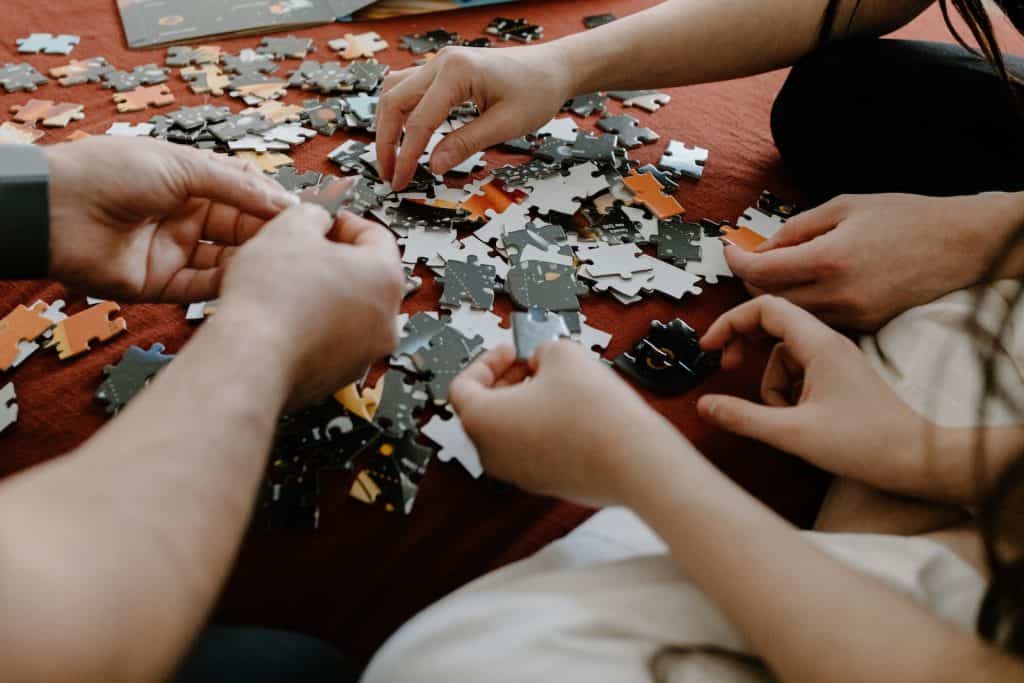For puzzle enthusiasts, nothing quite compares to the feeling of satisfaction that comes from successfully solving a jigsaw puzzle. However, in order to truly enjoy the experience, it’s important to choose the right jigsaw puzzle for your skill level. Whether you’re a novice or an experienced puzzler, selecting the perfect puzzle involves considering several factors such as difficulty level, number of pieces, age group, and personal interests. In this article, we will explore the key elements to consider when choosing the right jigsaw puzzle for your skill level, in order to ensure an enjoyable and challenging puzzle solving experience.
How to Choose the Right Jigsaw Puzzle for Your Skill Level
1. Determine Your Skill Level
Before diving into the world of jigsaw puzzles, it’s important to assess your puzzle solving skills and define your skill level. Are you a beginner who is just starting to solve puzzles, or an expert who can tackle the most complex images? Understanding your skill level will help you choose a puzzle that is both enjoyable and challenging. It is recommended that beginners start with puzzles that have fewer pieces and regular-shaped pieces, while experienced puzzlers can opt for more difficult puzzles with irregularly shaped pieces.
2. Consider the Number of Pieces

The number of puzzle pieces is a crucial factor in determining the difficulty level of a jigsaw puzzle. For younger children or beginners, puzzles with fewer pieces, typically ranging from 100 to 500, are ideal. As your puzzle solving skills improve, you can gradually increase the number of pieces to enhance the challenge. Advanced puzzlers may enjoy puzzles with thousands of pieces, providing a more intricate and time-consuming experience.
3. Age Group and Personal Interests
When selecting a jigsaw puzzle, it’s essential to consider the age group and personal interests of the puzzler. Puzzles designed for younger children often feature larger pieces and simpler images, whereas puzzles designed for older children and adults may contain smaller pieces and more complex images. By selecting a puzzle that aligns with the interests and preferences of the puzzler, the overall experience becomes more enjoyable and engaging.
4. Choose the Right Puzzle Design
The design of a jigsaw puzzle plays a significant role in determining its difficulty level. Some puzzles feature irregular shapes and intricate designs, making them more challenging to solve. On the other hand, puzzles with straight edges and interlocking pieces provide a defined space to work within, making them easier to solve. Depending on your skill level and preference, you can choose puzzles with unique shapes and complex images to challenge your problem-solving skills or opt for simpler designs for a more relaxed experience.

5. Consider the Quality of Materials
The quality of materials used in jigsaw puzzles can greatly impact your solving experience. Look for puzzles made from high-quality materials that are durable and sturdy. Cheaper puzzles may have pieces that bend easily or don’t fit together properly, which can be frustrating and detract from the enjoyment of the puzzle. Investing in puzzles made with high-quality materials ensures a smooth and satisfying puzzle solving experience.
6. Assess Stress Levels
While for some people solving puzzles can be a relaxing and enjoyable activity, for others it can be an avenue for stress relief. If your goal is to unwind and relax while solving a puzzle, it’s important to select one that matches your stress levels. For a challenging experience that requires focused attention, opt for puzzles with complex images and a higher difficulty level. Alternatively, if you prefer a more laid-back and enjoyable experience, choose a puzzle with a lower difficulty level and simpler designs.
7. Consider the Time Commitment
The time commitment required to complete a jigsaw puzzle is another important factor to consider. Some puzzlers prefer to finish a puzzle in one sitting, while others enjoy the challenge of working on it over an extended period of time. Larger puzzles with more pieces generally require a longer time commitment, making them ideal for those who enjoy a prolonged puzzle-solving experience. However, if you prefer quicker gratification, choosing puzzles with fewer pieces or simpler designs can provide a sense of accomplishment in a shorter amount of time.
Final Thoughts
Choosing the right jigsaw puzzle for your skill level is essential to ensure an enjoyable and challenging puzzle solving experience. By considering factors such as difficulty level, number of pieces, age group, and personal interests, you can select a puzzle that aligns with your skill level and preferences. Remember to choose puzzles with high-quality materials, appropriate designs, and a level of challenge that suits your stress levels. With the right puzzle in hand, you can embark on a fun and stimulating journey of problem-solving, bringing you a sense of achievement and satisfaction.

